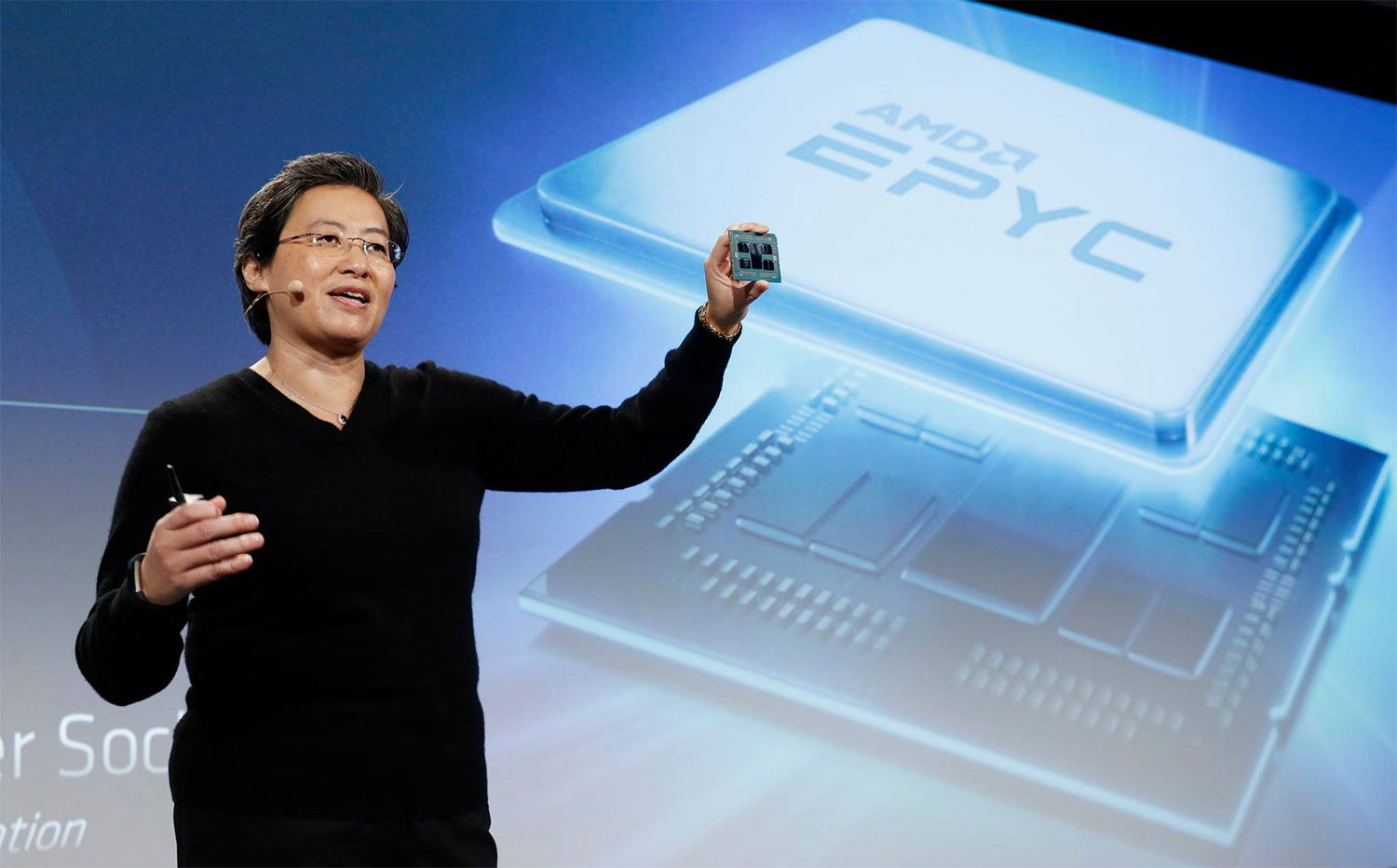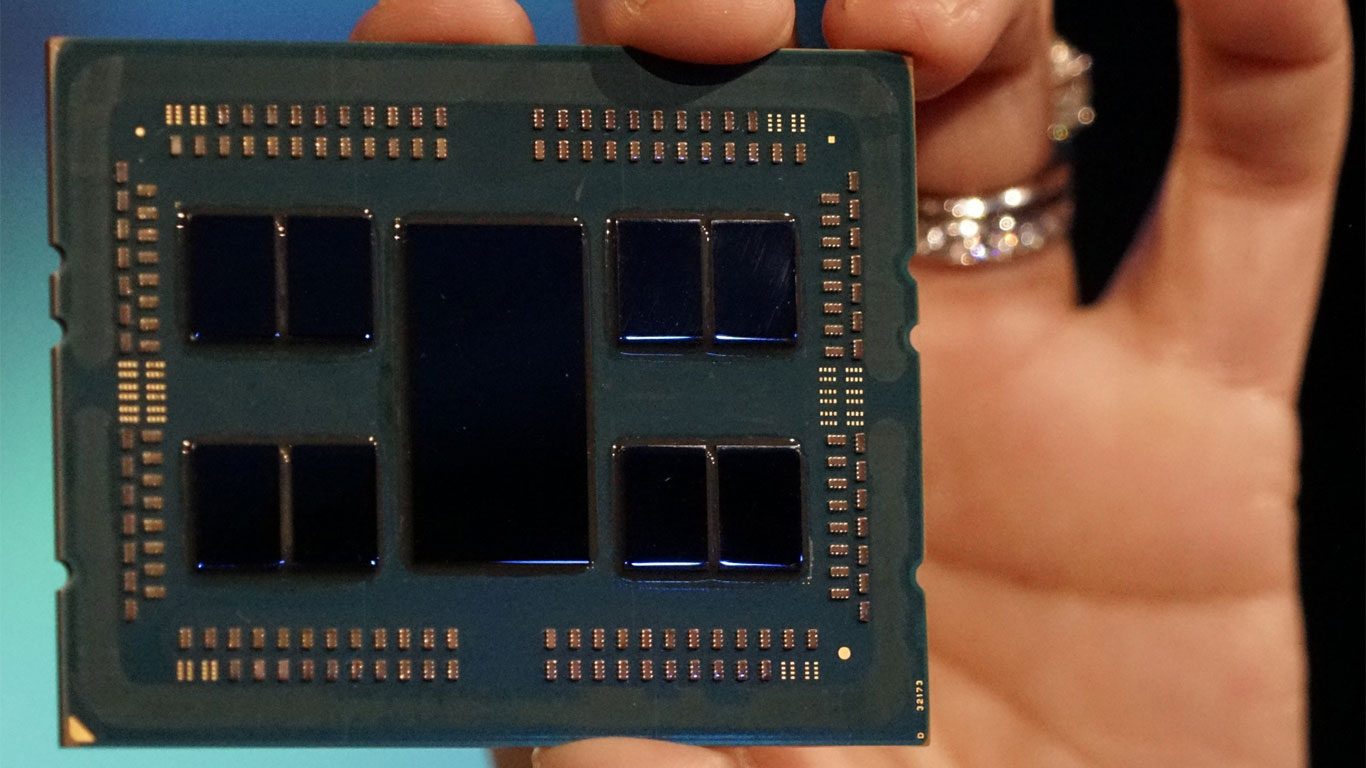AMD’s 64-core Zen 2 CPU is a precursor to next-gen 7nm Ryzen
An Epyc look at Zen 2.

AMD is now heavily invested in 7-nanometer designs, and this was on full display yesterday during its Next Horizon event. During the event, AMD announced a pair of 7nm Vega cards for professionals, which you can read about here, and provided the first real details on its upcoming Zen 2 architecture highlighted by a 64-core/128-thread Epyc processor codenamed Rome.
Just as with the 7nm-based Radeon Instinct cards AMD announced, Rome is not destined for the consumer market—it's a server chip, and a burly one at that. However, Zen 2 is headed to AMD's mainstream Ryzen processor family sometime next year, assuming no unforeseen bumps in the company's roadmap. AMD is confident there won't be, and even said that its 7nm+ Zen 3 and Zen 4 architectures are on track.
For now, AMD is only sharing details about Zen 2 on the server side. It's next-generation Epyc chips combine up to eight 7nm CPU "chiplets" with a central 14nm I/O die supporting 8-channel DDR4 memory and PCIe 4.0. AMD's second-generation Infinity Fabric is the bridge the connects them.

"The multi-chip processor uses 7nm process technology for the 'Zen 2' CPU cores that benefit from the advanced process technology, while leveraging a mature 14nm process technology for the input/output portion of the chip. The result is much higher performance—more CPU cores at the same power, and more cost-effective manufacture than traditional monolithic chip designs," AMD says.
Moving the memory controller inside the I/O die should translate to lower latency that is more evenly distributed. In addition, AMD said it's Zen 2 architecture delivers twice the compute performance per socket and four times the floating point performance, compared to current Epyc processors.
If the claims hold true, then Rome will prove an impressive upgrade. What exactly gets ported over to Ryzen, however, isn't known. From our vantage point, it seems like a single 8-core chiplet would be the best approach, but it depends (in part) on how many cores/threads AMD wants to push.
What we don't know for now is the expected clockspeed of the Rome processors, and more critically, how high the Zen 2 consumer parts will clock. Based on AMD's 25 percent improvement in performance with Vega 7nm, Zen 2 could compete directly with Intel on clockspeed, and other enhancements to the core architecture are likely as well. Next year will be the first time ever that AMD's CPUs hold a process node manufacturing advantage over Intel. We're eager to see how that plays out.
The biggest gaming news, reviews and hardware deals
Keep up to date with the most important stories and the best deals, as picked by the PC Gamer team.
You can check out the full Next Horizon event below, provided you have a couple hours of free time.
Paul has been playing PC games and raking his knuckles on computer hardware since the Commodore 64. He does not have any tattoos, but thinks it would be cool to get one that reads LOAD"*",8,1. In his off time, he rides motorcycles and wrestles alligators (only one of those is true).



